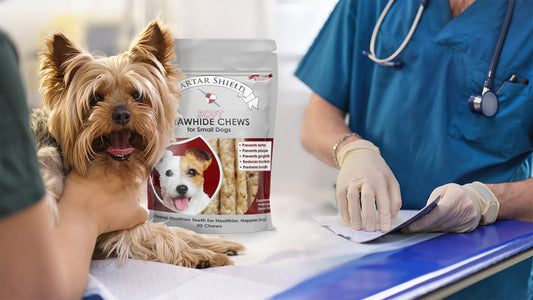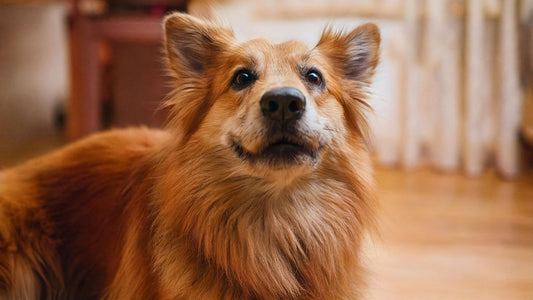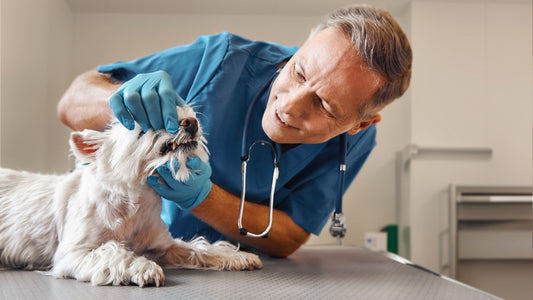As the holiday season approaches, many pet owners look forward to including their furry friends in the festivities. While the holidays offer family gatherings, delicious foods, and festive decorations, they also bring unique challenges to pet safety. With proper awareness and preparation, you can ensure your pets stay safe and healthy, allowing you to enjoy the holiday season together fully.
In this guide, we'll cover essential safety tips for preventing pet-related mishaps, highlight common hazards, and provide guidance on how to handle emergencies so both you and your beloved companion can bask in the holiday cheer.
Why Should You Avoid Giving Your Pet Table Scraps?
Feeding pets table scraps can lead to several health issues. Firstly, human food often lacks the essential nutrients that pets need for a balanced diet, which can result in deficiencies and various health problems. Many human foods are also high in calories and fat, contributing to obesity, which can lead to serious conditions such as diabetes, joint issues, and heart disease. Additionally, pets have different digestive systems than humans, meaning that foods safe for us may cause gastrointestinal upset, including vomiting and diarrhea, in pets.
Likewise, feeding pets from the table can encourage begging and other undesirable behaviors, making training and establishing boundaries more challenging. There is also the risk of exposure to toxic foods; certain items like chocolate, onions, and grapes are harmful to pets, and giving them table scraps increases the chance of accidental poisoning. Finally, many human foods can lead to dental problems in pets, such as plaque buildup and gum disease.
In addition to avoiding table scraps, consider other environmental factors such as seasonal allergens that could affect your pet's health.
What Thanksgiving Foods Are Toxic to Pets?

It is important to remember that during the Thanksgiving holiday, pets can't be treated like humans. Think about what you're eating before you set out to feed the animals in your household. Never feed your pet uncooked meats, fats, skins, or bones. You should also consider that many foods that are safe for us are not suitable for dogs and cats.
Here's a list of some common foods to avoid giving to your pets:
- Bones — Can splinter, causing choking or internal injury.
- High-fat foods — May lead to GI upset and pancreatitis.
- Onions and garlic — Can cause anemia in pets.
- Grapes and raisins — Risk of kidney failure in dogs.
- Bread (yeast) — Expands, causing bloating and alcohol poisoning.
- Alcohol — Causes vomiting, tremors, and seizures.
- Chocolate— Toxic, especially dark chocolate.
- Artificial sweetener (xylitol) — Leads to seizures, liver failure.
- Macadamia nuts — Causes weakness and tremors.
- Avocados — Contains persin, which is toxic to some animals.
- Coffee and caffeine — Can cause rapid heart rate and seizures.
- Salt — Excessive amounts lead to sodium ion poisoning, causing vomiting and tremors.
Be Aware of Pet Pancreatitis
Pancreatitis is a condition pet owners might not consider during the festive chaos of Thanksgiving, but it's important to be aware of it. Foods like gravy, fatty meats, and certain desserts pose a risk to pet's digestive tract or even pancreatitis. Avoid offering your pet table scraps, particularly those high in fat.
- Keep your pet's diet consistent; skip the fatty foods.
- Opt for pet-safe treats like plain green beans.
- In case of suspected pancreatitis, contact your vet immediately.
What Are the Common Choking Hazards for Pets?

Ensuring your pet can’t access potentially hazardous items will help keep them safe during the holiday. A little vigilance goes a long way in ensuring your pet’s ability to travel through the holidays remains safe and enjoyable. Here are just a few extra items to be on the lookout for during your holiday events:
- Small bones found in various meals.
- Skewers or cocktail sticks.
- String used in cooking.
- Wrappers or packaging from Thanksgiving dishes.
- Children's small toys and items (especially if not commonly in your pets normal environment)
How Can Festive Decorations Pose a Risk?
Many people want to add a touch of the holiday spirit to their home during this time of year by decorating their living room, kitchen or backyard with various plants, flowers and decorations. However, it's crucial to be mindful of potential risks. Decorations such as amaryllis, baby’s breath, sweet william, some ferns, and hydrangeas can be toxic to animals and humans. Additionally, string lights and other shiny objects can entice pets, posing choking or entanglement hazards. Always ensure that decorations are safely out of reach of curious pets and children to prevent any mishaps.
What Should You Do if You Believe Your Pet is in Danger?
If you believe your pet is in danger, it is crucial to act swiftly and calmly. First, ensure your pet has proper identification and medical information readily available. Be aware that some items and substances that are harmless to people are poisonous to pets. Therefore, it is essential to keep household items that carry some hazards for pets away from your furry companions. Familiarize yourself with what is harmful for pets and know your dog or cat well enough to notice any unusual behavior, such as if your dog or cat is nervous or showing signs of distress.
When to Call the ASPCA Animal Poison Control Center?
If you suspect your pet has ingested something toxic, you should call the ASPCA Poison Control Center or your local veterinarian immediately for guidance. They provide expert advice on potential pet emergencies and can help determine the severity of the situation. In the event of an emergency, promptly contact your veterinarian or local veterinary emergency clinic. If your pet has ingested something that may cause a blockage if eaten, this also requires immediate attention.
During pet emergencies, it is vital to remain composed and follow the steps for emergency veterinary care. Call your local veterinary emergency clinic ahead to inform them of your arrival. Keep family and food away from your pets to prevent further complications. Acting quickly and responsibly can make a significant difference in your pet's well-being.
Planning Ahead When Holiday Traveling

Traveling with your pet for the holidays can be a stressful and traumatic experience for them, especially with the unfamiliar sights and sounds of cars, planes, and boats. Whether by air or car, always consult your vet beforehand to ensure their safety and health, particularly for breeds prone to respiratory issues. It's essential to check the travel policies of airlines or any transport method, and ensure your accommodations are pet-friendly.
Familiar objects, such as blankets or toys, can provide comfort and reduce anxiety. Prior to the trip, acclimate your pet to its carrier with short outings, ensuring it's comfortable and secure. Keep your pet's routine stable on travel day, and don't forget essentials like food, water, medications, and identification. Lastly, plan ahead by researching your destination's pet-friendly amenities and local regulations. Prioritizing your pet's comfort will make for a safer and happier journey.



